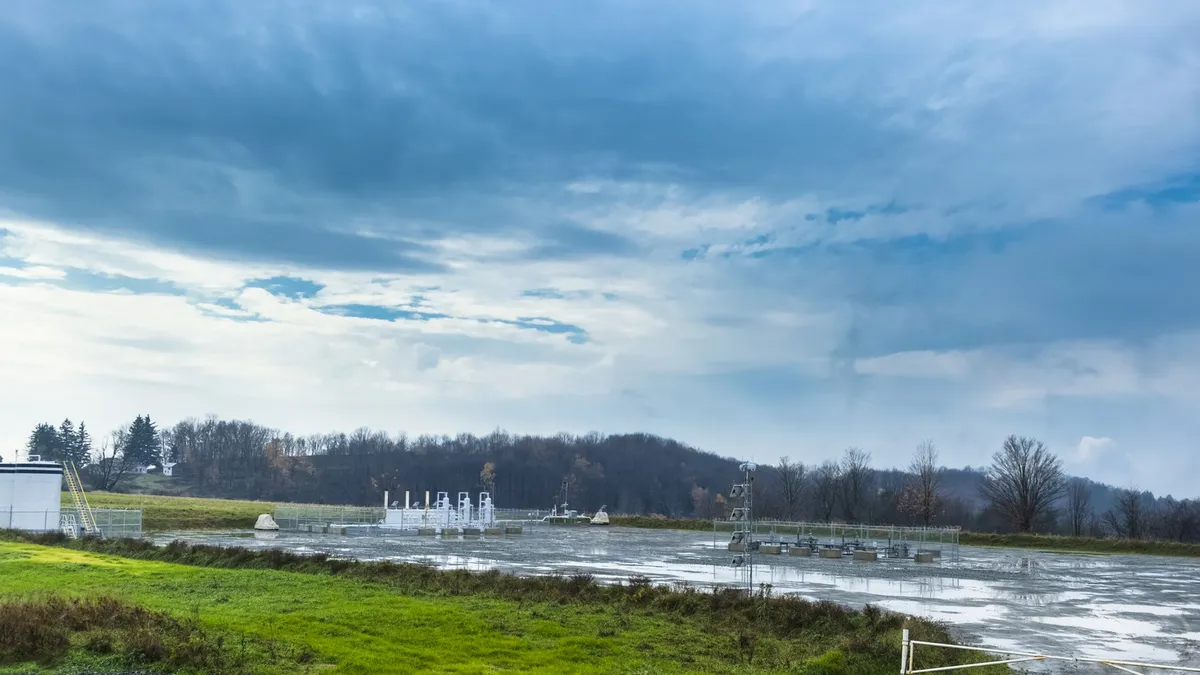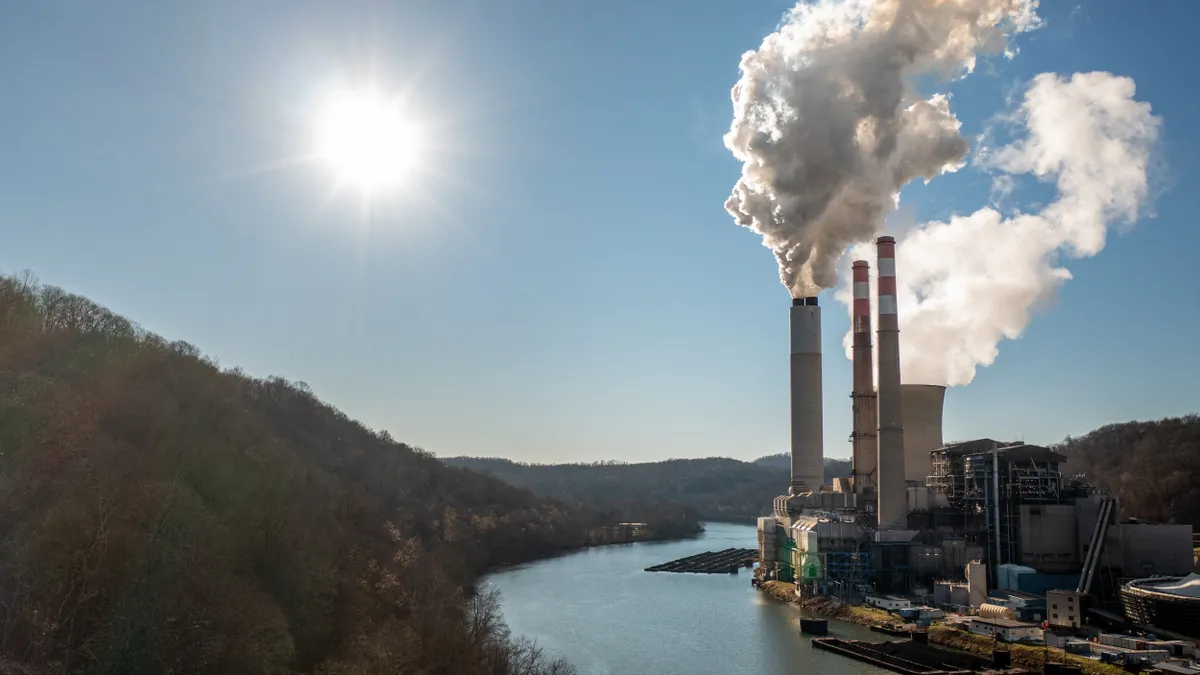The new chairman of the Federal Energy Regulatory Commission (FERC) pledged Wednesday to protect his agency from political influence as it tackles high-profile issues of grid resilience and fuel security.
"We should be separate and apart from any political influence on either side," Chatterjee told reporters during a press conference at FERC headquarters.
Chatterjee took over the leadership role at FERC last week from Commissioner Kevin McIntyre, who stepped down from the post due to health issues.
McIntyre's last few months in the top job were dogged by concerns of political influence stemming from partisan comments made by his chief of staff, Anthony Pugliese. Chatterjee said he has addressed the issue with commission employees, but outside pressures never affected FERC decisions.
"I intend to do everything in my power, and I've made clear to all of the staff at the agency, including the chief of staff, that the agency's independence from political influence will continue," Chatterjee said.
FERC is a legally independent agency whose regulators typically pride themselves on nonpartisan policymaking. Chatterjee said that independence will extend to FERC's evaluation of a case on grid resilience — the ability to bounce back from outages — set up early this year when regulators rejected a plan from the Trump administration to bail out money-losing coal and nuclear plants.
"Whatever we do is going to be fact-based and that is something my colleagues and I take very seriously," Chatterjee said. "This will not be a politically influenced decision."
It is Chatterjee's second stint in the top spot at FERC; he was acting chairman from July to Dec. 2017 before McIntyre took his seat.
During that time, Chatterjee raised concerns of political influence by floating a short-term coal and nuclear bailout with the press while FERC was evaluating the White House's plan. Now, he says that option will not be on the table.
"That is separate and apart from what we will do in evaluating our resilience proceeding," he said.
Chatterjee said FERC "essentially adopted" his interim support plan in response to fuel security concerns in ISO-New England. In that July order, FERC allowed a large natural gas plant in Boston to apply for cost recovery while the commission takes a longer look at how to secure fuel supplies to generators in the region — a strategy that matched the design of his short-term pitch.
Now, some FERC regulators and market participants are concerned that fuel security proceeding and similar emerging issues in PJM could have the same effect as the White House's original plan — keeping uneconomic generators online with little benefit to the grid.
"I am concerned that people may try to use the fuel security debate to achieve those goals," Commissioner Richard Glick told reporters Tuesday.
Chatterjee declined to say whether he shares Glick's concerns about the fuel security proceeding, but pledged FERC's decision on the matter, expected early next year, will also be free of political influence.
"To the concerns raised by Commissioner Glick, he will have an opportunity to review the record, as I will and my colleagues will, and what, if any, measures we take going forward will have to be fact-based and based on the rule of law," he said.
Continuity and growth
Chatterjee said he will strive for continuity at FERC as he transitions back to the chairman's role, including keeping Pugliese, whom he first hired, on the commission staff.
"There is tremendous administrative responsibility in the chairman's office and as someone who's been a commissioner for the last year, from what I've seen Anthony has managed the administrative capabilities of the agency very well," he said.
Some issues prioritized by McIntyre may have to wait, Chatterjee warned, like a review of the commission's pipeline approval policy the former chairman hoped to conclude by the end of the year. Even with McIntyre remaining on FERC, the five-person commission still has one open seat, and Chatterjee said he would rather wait for nominee Bernard McNamee to be confirmed by the Senate before finalizing the review.
"Ultimately the strongest policy statements aren't just from a full complement of commissioners, but a unanimous full complement of commissioners," he said. "That will have the longest durability."
The focus on political independence represents a shift for Chatterjee, who was previously an aide for Sen. Majority Leader Mitch McConnell. Since his last stint as chairman, officials from throughout the energy industry say they've seen him shift from an ally of the coal industry to a less political regulator — something he addressed Tuesday.
"My growing into this role has been significant," he said. "When I first came to the commission last fall, coming from a partisan legislative role in which I worked on behalf of my boss to really fight against the retirement of coal-fired generation, initially I was sympathetic to [the White House's coal plan.]"
"As I evolve into the role I recognize that is not part of our record," he said. "That does not factor into the statutes that govern us and I had to make a decision ... based on the record before us."






















